HOME
Museum &
Collections
Soldiers of the Regiment
Sales
Donations
Events
Contact Us
REGIMENTAL HISTORY
17th Century
18th Century
19th Century
20th Century
First World War
Second World War
Actions & Movements
Battle Honours
FAMILY HISTORY
Resources
Further Reading
PHOTO GALLERY
ENQUIRIES
FURTHER READING
LINKS


© Images are copyright, Trustees of the King's Own Royal Regiment Museum.
You must seek permission prior to
publication of any of our images.
|
|
Second World War
On This Day

May 1940
1 May 1940
Adolf Hitler set the date of 6th May for the Western offensive,
the date would be postponed due to the weather.
Norwegian troops at Lillehammer surrendered to the Germans.
A Nazi German aircraft was in the vicinity of Blyth harbour,
Northumberland at 23.30 for about 15 minutes.
Anti-aircraft guns were fired at the plane which was illuminated
by search lights, which the enemy machine gunned |
2 May 1940
Their Majesties the King and Queen made a visit to the
Regimental Depot at Bowerham Barracks, and met members of the
permanent training staff, soldiers being trained and members of
the Auxiliary Territorial Service.
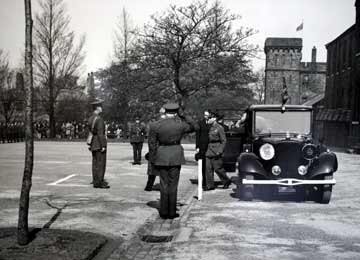
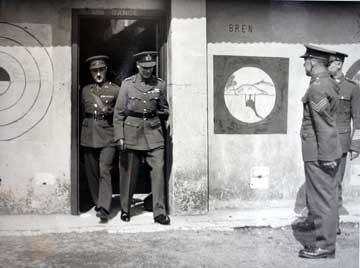
In Norway German forces reached Andalsnes. |
3 May 1940
In Norway the Allied evacuation of Namsos was completed by
German aircraft sank the destroyers HMS Afridi and the French
'Bison'. Norwegian troops south of Trondheim surrendered
to the Germans. |
4 May 1940
In Norway the Polish destroyer 'Grom' was sunk in the Rombaken
fjord by a German Heinkel HE111 |
5 May 1940
In Norway the Battle of Hegra ended when the fortress
capitulated. The Germans had now achieved complete victory
on Norway's southern front. |
6 May 1940
A massive German motorised column was spotted driving west
through the Ardennes, but the Belgian Army did not respond. |
7 May 1940
In Norway five thousand Polish mountain troops arrived at
Harstad.
Nazi German propaganda alleged one of the reasons why British
troops were unsuccessful in the fighting in Norway was that many
troops had been poisoned by the tinned food issued to them.
The British government stated there were no grounds for this
allegation.
A debate in the House of Commons gave details of the
Government's mishandling of the Norwegian Campaign.
It was
stated in the House of Commons that since the introduction of
the blackout in September 1939, 18 seamen had died in the Port
of Liverpool, 15 of which occurred in the hours of darkness.
It was stated that suitably restricted lighting was used on
gangways and guard chains used at dangerous parts of the docks. |
8 May 1940
In Norway the action in Nordland began.
In the House of Commons the debate continued and the Prime
Minister, Neville Chamberlain, survived a motion of no
confidence. |
9 May 1940
Men aged between 28 years and 36 years were now liable for
military service.
British troops occupied Iceland.
Belgium declared a state of emergency and place its military on
full alert.
The Royal family of Luxembourg and most of its government fled
westward to France due to reports of German troop movements. |
10 May 1940
Nine months after war had been declared, Nazi German forces
invaded the Netherlands, Belgium and France, and launched the
first air attacks on the British Expeditionary Force in France.
Five battalions of the King's Own were with the BEF, plus the
56th Anti-Tank Regiment Royal Artillery, which had converted
from the 4th Battalion in 1938.
Winston Churchill becomes Prime Minister with the resignation of
Neville Chamberlain. |
11 May 1940
The soldiers of the British Expeditionary Force in France,
including battalions of the King's Own Royal Regiment, hear the
news that Winston Churchill had become Prime Minister back in
London. The 5th (Territorial) Battalion held positions at Le
Touquet, and the 6th, 7th, and 8th Pioneer Battalions were
located in North East France, but all were poorly equipped as
infantry. |
12 May 1940
On this day in 1937 it was the Coronation of King George VI. 80
Years ago the Battle of France was underway. Earlier in the
month the King and Queen had visited Bowerham Barracks, in
Lancaster, see both soldiers of the King's Own and members of
the Auxiliary Territorial Service who were being trained at the
Regiment's Depot.
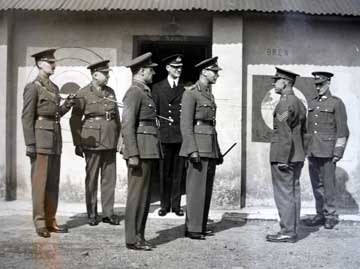
His Majesty The King,
accompanied by Lieutenant Colonel R P F White, MC, Depot Officer Commanding, is speaking to Sergeant H G Phenna
MM after visiting the miniature range at Bowerham Barracks, 2nd May 1940.
Accession Number KO0705/22 |
13 May 1940
Nazi German forces were crushing resistance in the Netherlands
and fighting the French at Sedan. Meanwhile in London, Winston
Churchill made his first speech to the House of Commons as Prime
Minister, and then spoke via the BBC to the Nation.
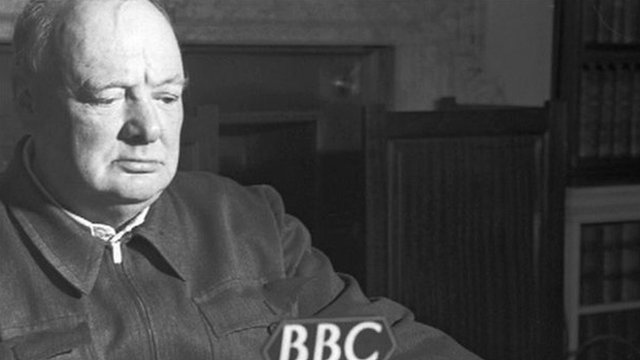
Prime Minister Winston Churchill |
14 May 1940
The Netherlands capitulated, Queen Wilhelmina, the Dutch Royal
Family and government were evacuated by the Royal Navy to
England. Nazi German bombing devastated the city of Rotterdam.
In Britain the government announced the formation of the "Local
Defence Volunteers", which soon became known as "The Home
Guard". Men from across the country quickly volunteered to
serve. Four local units wore the cap badge of the King's Own.
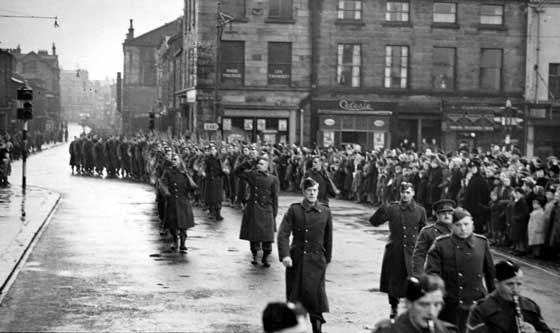
3rd (City of Lancaster) Battalion, County of Lancaster
Home Guard, on parade through
Lancaster in 1944.
Accession Number KO2631/05 |
15 May 1940
In the Battle of France, soldiers of the 8th Battalion, King's
Own were attacked by Nazi German dive bombers. The battalion
suffered no casualties.
Further to the south the Germans had defeated the French army at
the Battle of Sedan, and Nazi forces continued their push into
France.
Within 24 hours of the government establishing the Local Defence
Volunteers, for men aged between 17 and 65 years, more than 250
000 men had reported to their local police station to join.
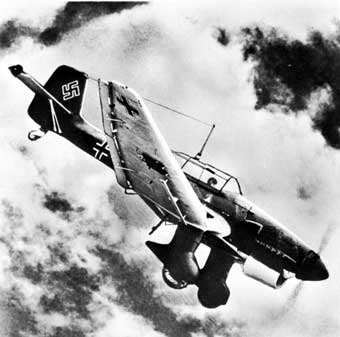 |
16 May 1940
Nazi German forces moved through Sedan to the West rather than
South West or South as expected, they were now aiming for the
English Channel.
Soldiers of the British Expeditionary Force repulsed German
attacks at Louvain. French forces counter attacked with tanks
and aircraft, but were unable to re-establish their line.
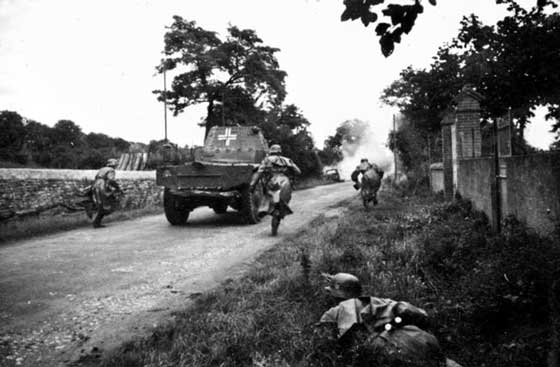 |
17 May 1940
Lord Gort VC, Commanding the British Expeditionary Force ordered
the withdrawal of troops in Belgium back to the River Scheldt,
This allowed the Nazi German 6th Army to capture Brussels.
The Royal Air Force bombed German oil storage facilities at
Bremen and Hamburg.
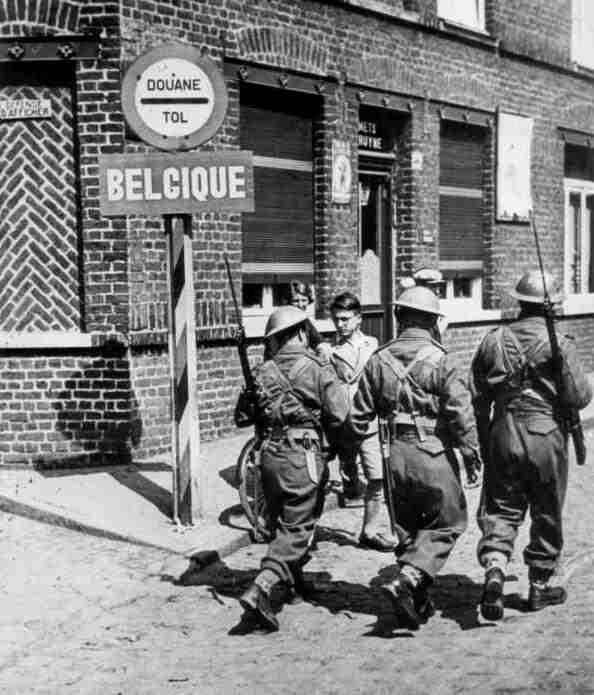 |
18 May 1940
The German 7th Panzer Tank Division under General Erwin Rommel,
captured the French town of Cambrai, a place so well known to
many King's Own soldiers in the First World War.
The 2nd Panzer Division captured Saint Quentin in France, and
the German 18th Army captured the Belgium port of Antwerp.
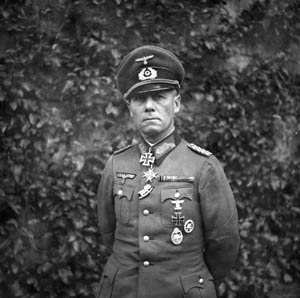
General Erwin Rommel, commanding the German 7th Panzer Tank
Division in France, May 1940. |
19 May 1940
In the Battle of France the situation was not looking good. The
British Expeditionary Force was ordered by its Commander Lord
Gort VC, to fall back on to the port of Dunkirk.
Units spread across North East France and Belgium would now
withdrawn from their positions and head to the port on the
English Channel.
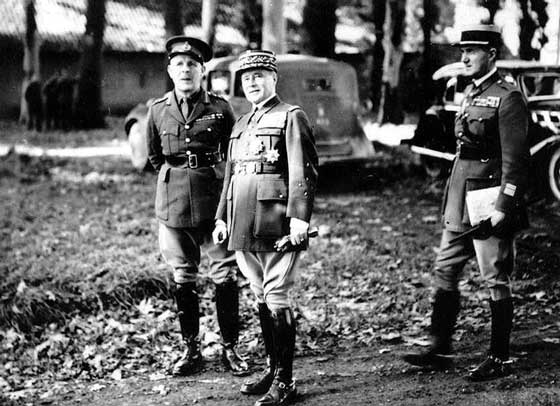 |
20 May 1940
In Lancaster the City & King's Own Museums had been closed since
1st September 1939. Within four days the collections had been
removed to various safety stores around Lancaster.
The museum building was then used at the Billeting Headquarters
under the Government Evacuation Scheme, with the Curator, Mr G M
Bland, in charge of the scheme in Lancaster. The cellars
were used as an Air Raid Shelter.
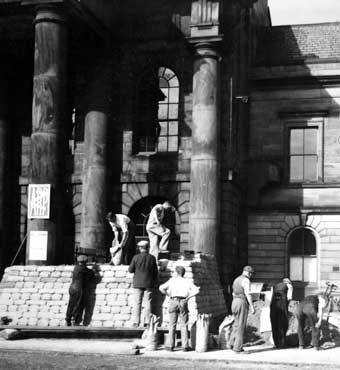 |
21 May 1940
Nazi German Panzers reached the English Channel coast to the
west of Abbeville, France, and Allied troops in the north east
of France are cut off from their comrades in the South. The
indecision of the German High Command was now key - they had
advanced so rapidly they did not know what to do next - go north
or go south. So on this day the German Armoured Divisions in
France stood idle.
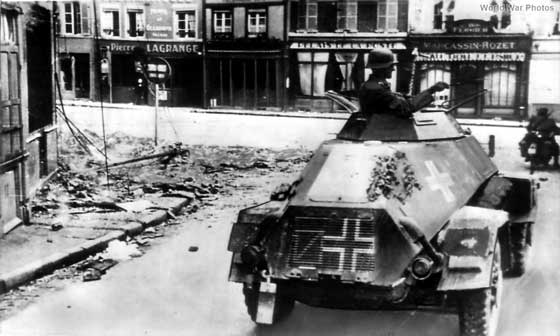 |
22 May 1940
People in Lancaster were supporting the war effort. A room at
Westfield House, at the War Memorial Village, was used as a
centre for providing material such as wool for knitters and for
collecting and distributing finished articles and comforts for
the men of the King's Own Royal Regiment.
A Thé Dansant held in April had
raised £51 17 shillings and one penny for The King's Own
Comforts Fund.
A debate in the House of Commons discussed the newly created
Local Defence Volunteers.
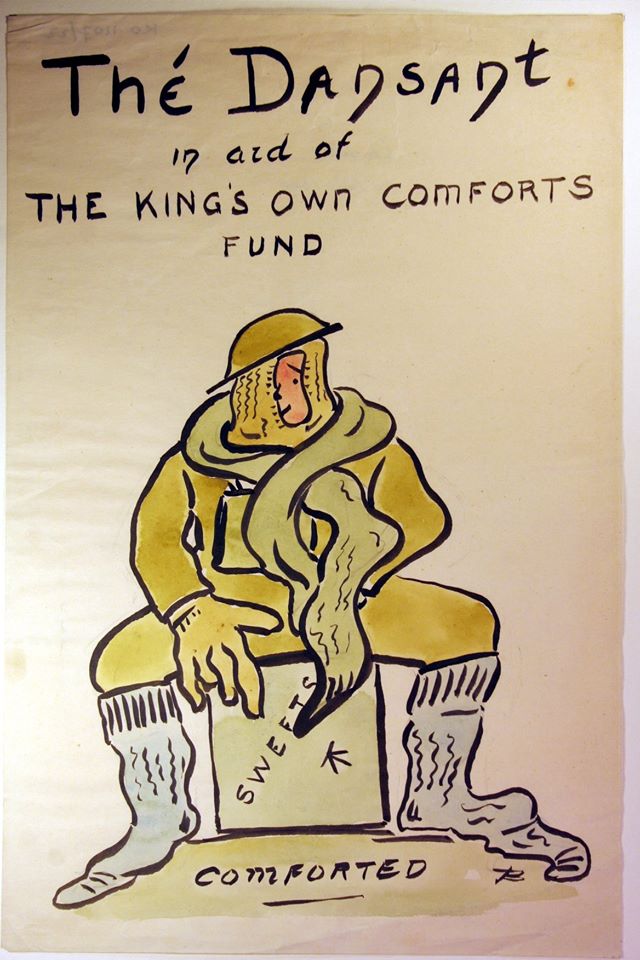 |
23 May 1940
The British launched a counter attack against the Germans at the
Battle of Arras. It was limited, and they were too weak to
follow up its early success - but the they did inflict damage on
the Germans.
It convinced the German High Command that its army had advanced
too far and its flanks were dangerously exposed.
Meanwhile Lord Gort, Commanding the BEF, saw that it was
essential to hold the Channel ports for as long as possible as
Germans advanced from Boulogne in the west and Belgium in the
east.
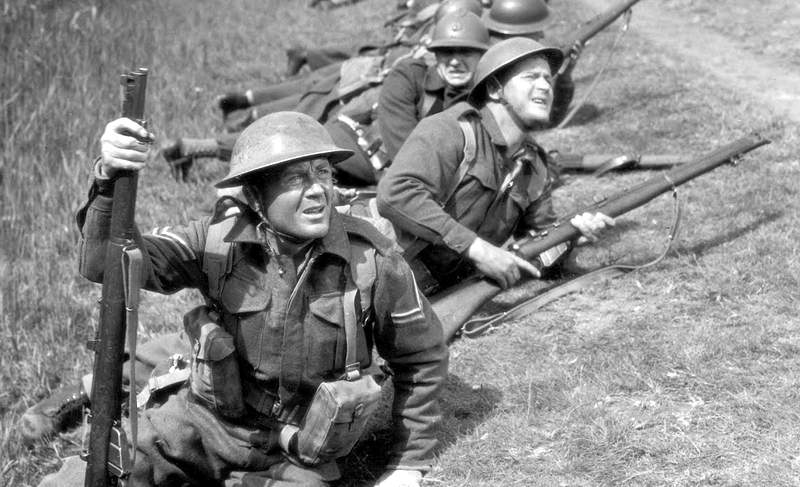
The photo is a still from the 1958 film Dunkirk. |
24 May 1940
The 6th Battalion, King's Own were making their way back to
Dunkirk. They fought a determined rear guard action at Merville.
Private Longyear was awarded the Military Medal for holding back
3 German armoured fighting vehicles at a canal bridge, which
could not be blown up.
The 5th Bn King's Own was attacked by 24 German aircraft. At
Wannehain Wood Drummer James Whitbread fired a Bren gun to force
the attacking planes to break formation. He continued to fire
even after others in his gun position had been blown out by a
bomb. He continued to man his gun for the rest of the day as
attacks continued. He was awarded the Military Medal for his
Gallantry.
Nazi German Panzer forces halted outside Dunkirk as the low
lying ground was unsuitable for them, and the British
strengthened the perimeter defences.
 |
25
May 1940
Lancaster's Local Defence Volunteers, later the Home Guard, were
established in the police parade room at Lancaster Town Hall.
All of the first volunteers were former soldiers. They were
equipped with 10 rifles, 40 rounds of ammunition per man, 10
suits of denims and forage caps.
The 10 men were based at the Phoenix Street Drill Hall, and a
bus was parked at the Corporation Garage in order that they
could be mobile and go to where ever they were required.
In the Battle for France the decision was made to evacuation the
British Expeditionary Force, with all troops ordered back to the
coast, Dunkirk if possible.
5th Battalion, King's Own, were ordered to hold a line on the
River Marcq at Bouvines. The 8th Battalion moved to Kemmel,
Zillebeke and Poperinghe, all places so familiar to the Regiment
in the First World War. |
26 May 1940
Operation Dynamo started, this was the evacuation of the British
troops from Dunkirk.
The 6th Battalion, King's Own, was fighting a rear-guard action
at Merville, as they withdrew to Dunkirk. Sergeant George Mason
lead a patrol which resulted in the capture of 12 German
prisoners, 3 armoured troop carriers, 4 motor cycle combinations
and one anti tank gun. He was awarded the Distinguished Conduct
Medal.
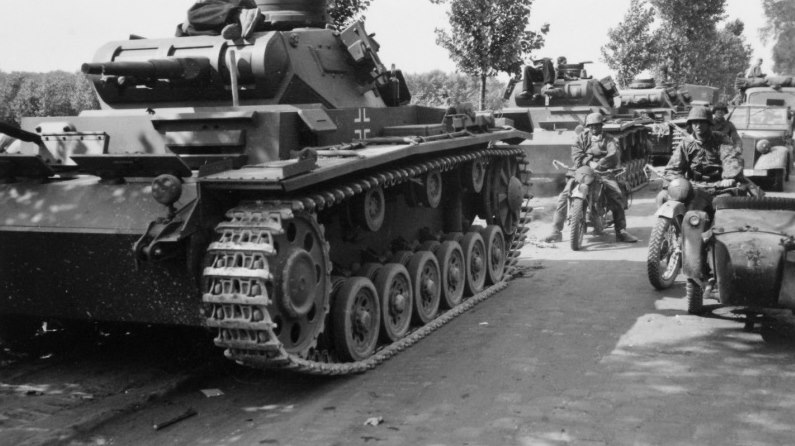 |
27 May 1940
A platoon of the 8th Battalion which had been guarding the Lille
telephone exchange were ordered to make for the coast after it
had been destroyed.
Meanwhile Captain J H Everett and men of 'C' Company, 8th
Battalion, held at bridgehead at Moeres near Bray-Dunes. Forty
men will killed or wounded by a large flight of German Junkers
aircraft which attacked them. There was no transport so it was
difficult to get treatment for the wounded. 17 men are recorded
as having been killed, and buried in a common grave. The near by
Adinkerke Military Cemetery, Belgium contains the graves of 17
men who died on that day.
All battalions of the King's Own were heading towards the port
and beaches at Dunkirk. The 6th Battalion was a Merville, the
8th Battalion was a Beveren and the 7th Battalion were attacked
by Germans across the River Lys. The battalion, however, has
success in shooting down a German aircraft with a Bren gun and
capturing the pilot.
Meanwhile 7669 soldiers were evacuated from Dunkirk during the
first day of Operation Dynamo. |
28 May 1940
King Leopold III surrendered Belgium forces to the Nazi German
forces.
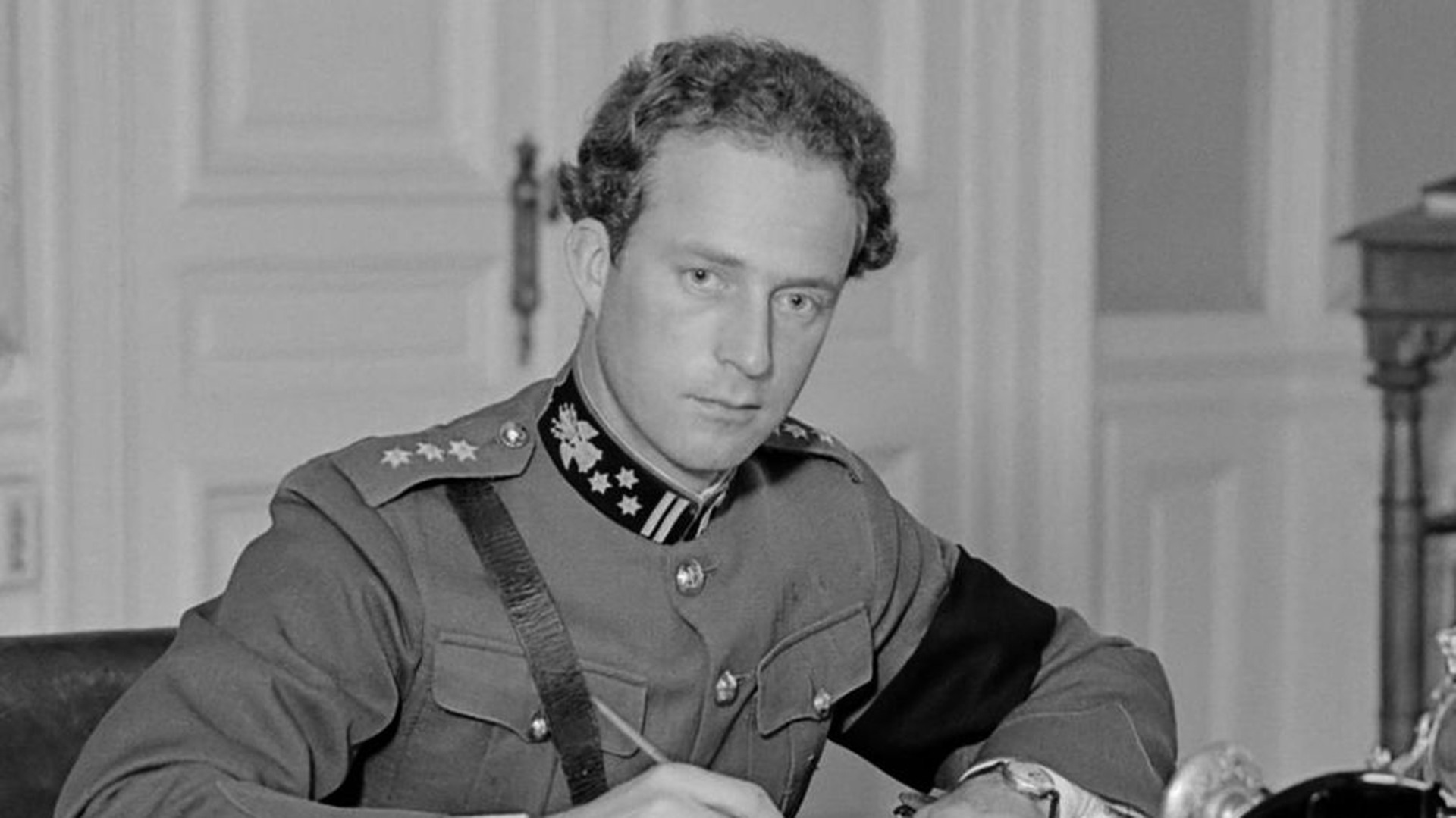
German forces had surrounded the French city of Lille.
A further 17804 men were lifted from Dunkirk as part of
Operation Dynamo, the rescue of the British Expeditionary Force. |
29 May 1940
The 56th Anti-Tank Regiment were protecting lines of
communication at Rousbruggee. The 9th Battalion, King's Own,
joined 3 Division and manned an area between the Furnes Bergues
and Furnes Dunkirk Canals.
Men from the 7th and 8th Battalions were started to be evacuated
from Dunkirk. The 6th Battalion was evacuated on board the SS
Prague. The SS Prague was London and North Eastern Railway ship
which usually operated on the Harwich to Hook of Holland
service.
.jpg) |
30 May 1940
The 8th Battalion, King's Own were evacuated from Dunkirk.
Elements of the 56th Anti-Tank Regiment evacuated and some
remained to defend the Dunkirk perimeter.
The 5th Battalion, King's Own, moved into Divisional Reserve at
Dunkirk, in order to support the front line troops as the Nazi
German land forces slowly reduced the size of the perimeter,
whilst the Luftwaffe continued to plague the men on the beaches
and target shipping in the Channel.
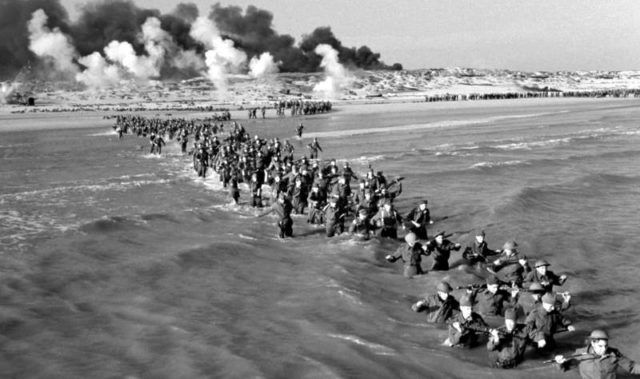
The photo is a still from the 1958 film Dunkirk. |
31
May 1940
Thousands of soldiers still awaited evacuation from the beaches
at Dunkirk. The 5th Battalion, King's Own remained in Divisional
Reserve within the perimeter.
The 8th Battalion, King's Own, arrived in Ramsgate and were
ordered to re-equip and move to the South East of England; the
9th Battalion arrived back in England and ordered to the
Southampton area.
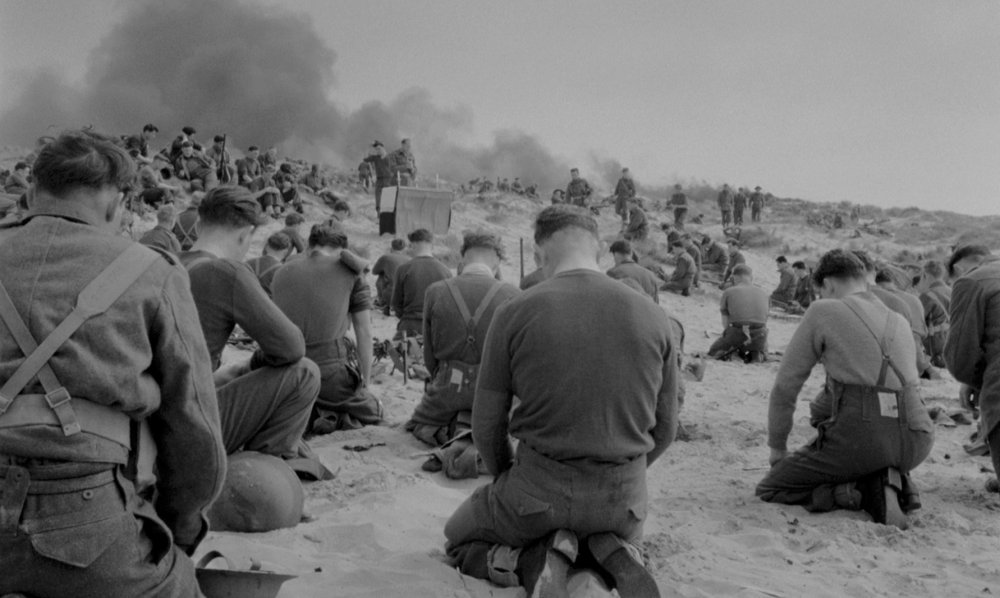
The photo is a still from the 1958 film Dunkirk. |
June 1940
© Images are copyright, Trustees of the King's Own Royal Regiment Museum.
You must seek permission prior to
publication of any of our images.
Only a proportion of our collections
are on display at anyone time. Certain items are on loan for display
in other institutions. An appointment is required to consult any of
our collections which are held in store. |



















.jpg)

